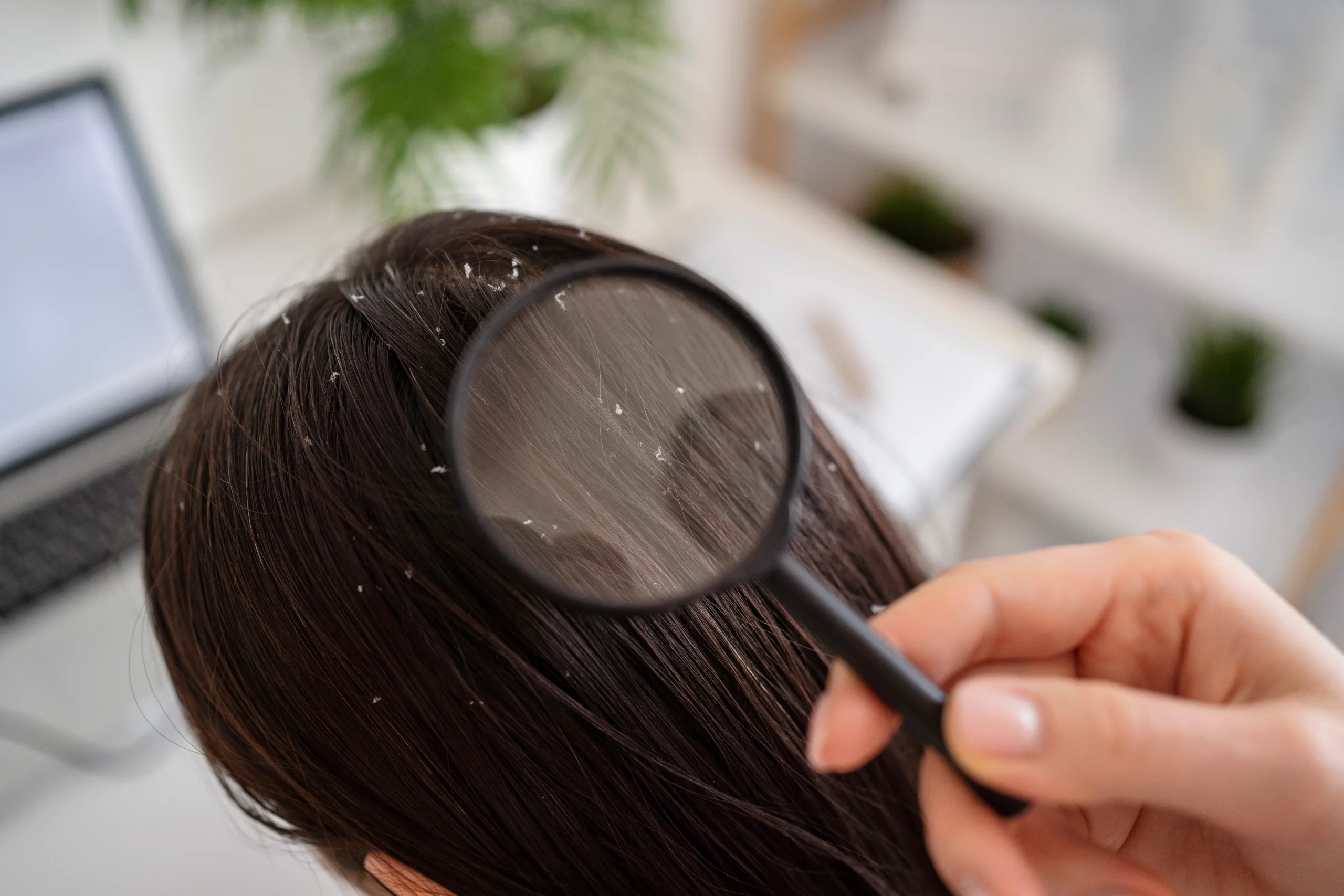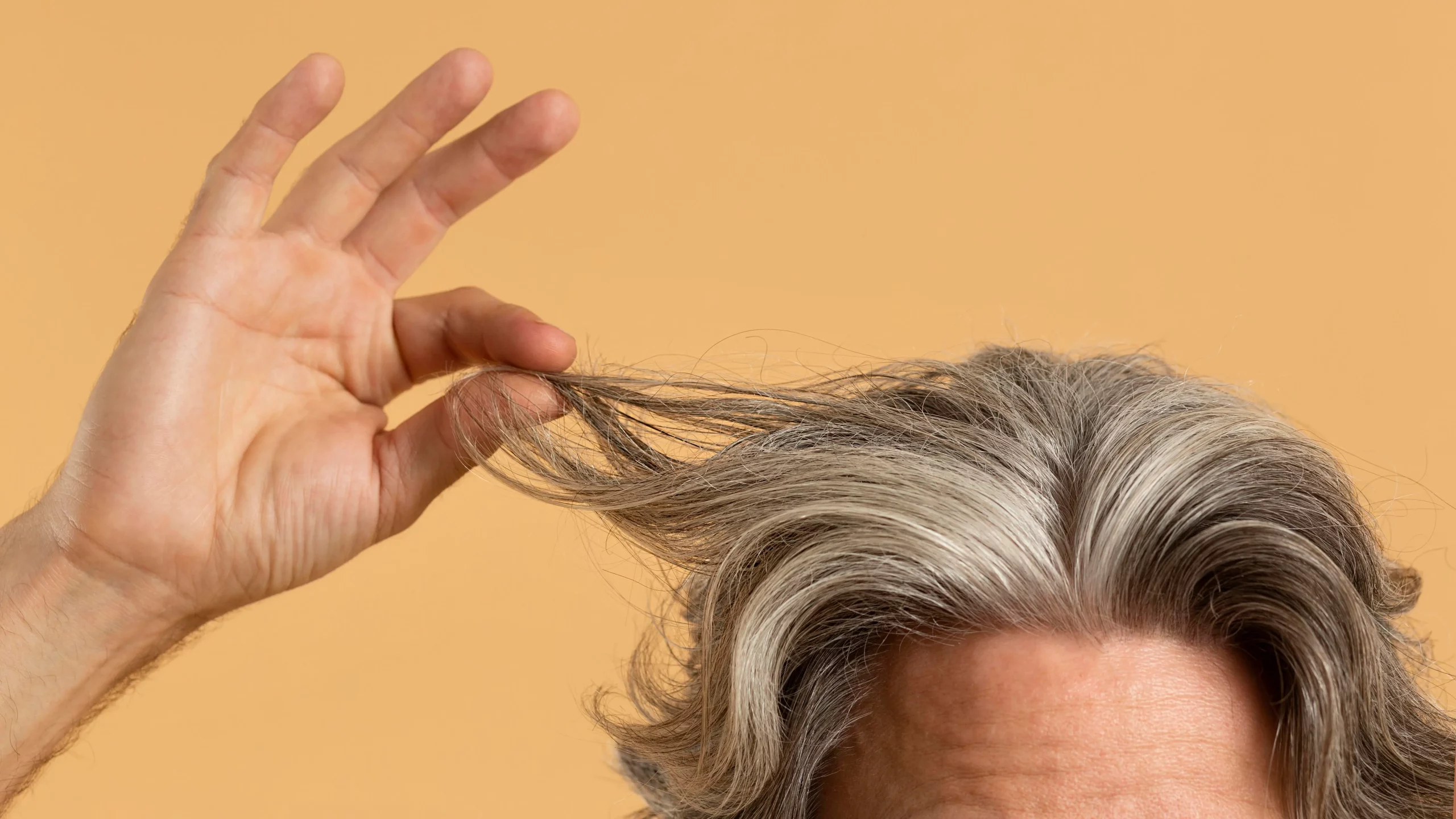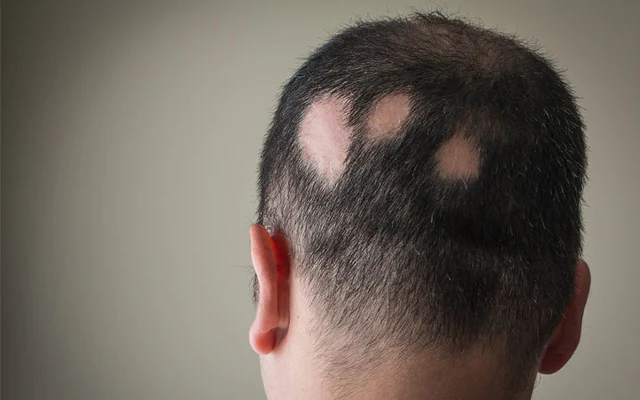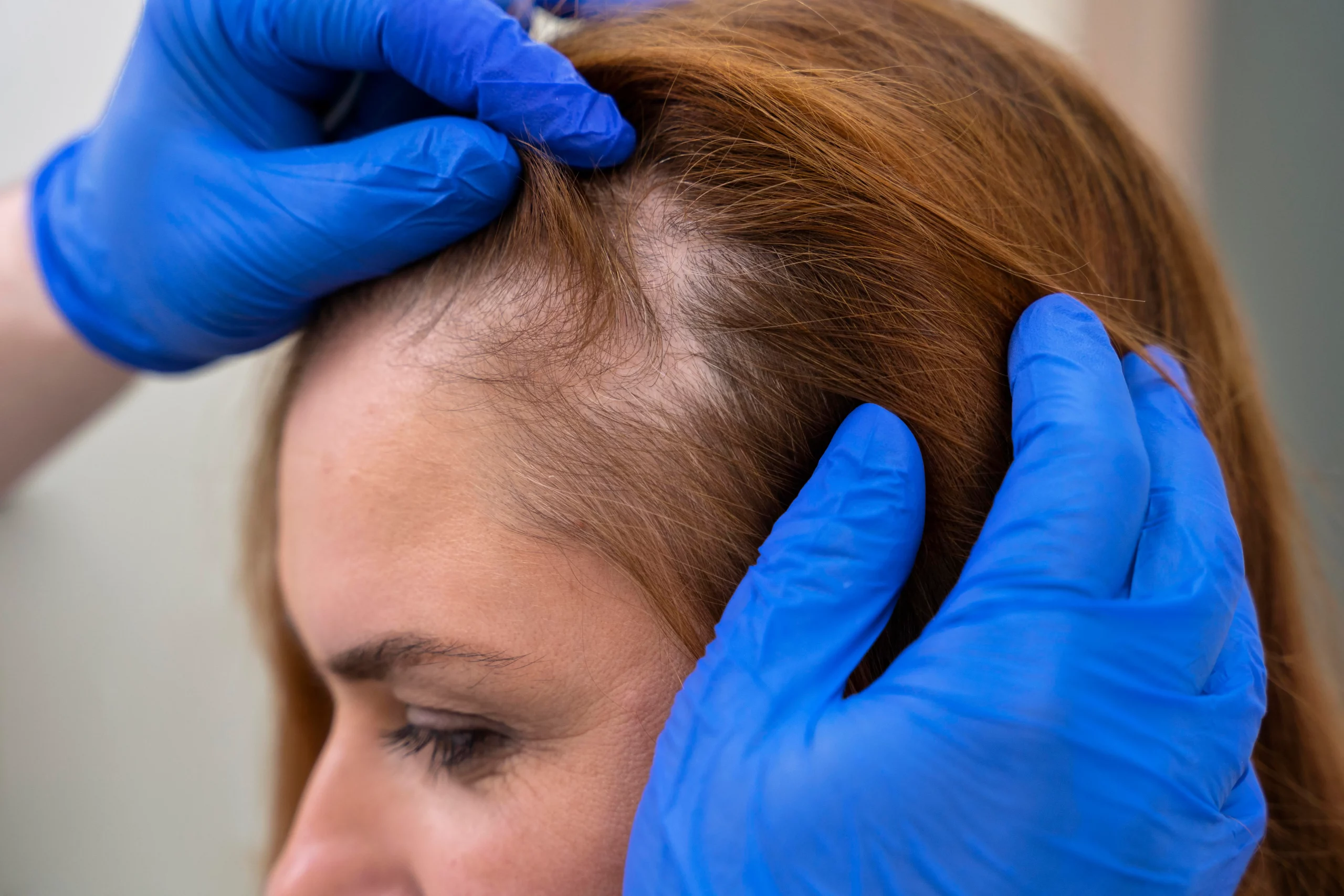Best Hair Specialist in Vadodara
Dedicated to Healing and Caring
Dr. Reema Baxi, one of the best dermatologists in Vadodara is dedicated to offering her service with a perfect blend of innovation and experience toward your healthy hair. Be it any hair problem, Sanjivani Hospital is dedicated to delivering exceptional results and this is where you will find the perfect solution to revitalize your hair.
What Hair Treatments Do We Offer?
We at Sanjivani Hospital has one of the best hair specialists in Vadodara and we offer various hair treatment. Some of the treatments are:
Hair Fall and Dandruff

In the majority of cases, lost hair regrows, allowing individuals to maintain a full head of hair. However, factors such as illness, hormonal shifts, stress, the natural aging process, and genetic predispositions can disrupt the hair growth cycle. More hair falls out, but new strands don’t always grow back. Hair loss has many possible causes like:
![]() Hereditary hair loss
Hereditary hair loss![]() Fungal infections on the scalp.
Fungal infections on the scalp.![]() Hairstyles (such as braids, hair extensions, or tight ponytails).
Hairstyles (such as braids, hair extensions, or tight ponytails).![]() Haircare products
Haircare products![]() Hormonal changes (such as pregnancy, childbirth or menopause).
Hormonal changes (such as pregnancy, childbirth or menopause).![]() Medical treatment (such as chemotherapy and certain medications).
Medical treatment (such as chemotherapy and certain medications).![]() Nutritional deficiencies (especially not getting enough iron or protein).
Nutritional deficiencies (especially not getting enough iron or protein).![]() Stressful events
Stressful events ![]() Thyroid disease.
Thyroid disease.
Dandruff is a common, noncontagious, easy-to-manage skin condition. This dermatitis type results in itchy red patches, accompanied by oily scales on the skin, and may also lead to the presence of white or yellow crusty or powdery flakes on the scalp.
Some symptoms include itchy white flakes of skin on your scalp, red scales on your skin, Crusty yellow scales on infants’ heads (cradle cap), and many more. Here are some causes, an increased level of androgens (a hormone), family history, and a type of yeast called Malassezia, which is present on everyone’s skin, but overgrows in some people.
Other factors that trigger or worsen seborrheic dermatitis include
![]() Stress.
Stress.![]() Cold and dry climate.
Cold and dry climate.![]() Oily skin.
Oily skin.![]() Using alcohol-based lotions.
Using alcohol-based lotions.![]() History of other skin disorders, including rosacea, psoriasis, and acne.
History of other skin disorders, including rosacea, psoriasis, and acne.
Graying of Hair

Natural hair gets its color from a pigment called melanin. The type and amount of melanin determine each person’s hair color. Melanin is produced by melanocyte cells. These cells are located in the (deepest) basal layer of the skin, just above the hair papilla (the bottom part of the hair follicle).
Gray hair is really hair with reduced melanin, while white hair completely lacks it. That’s partly because of a gradual decline in the number of stem cells that mature to become melanin-producing cells. In addition to aging, there are other causes of grey hair. These factors affect how melanocytes function and can cause premature grey hair by lowering the production of pigment. Causes of grey hair are:
![]() Aging
Aging![]() Genetics
Genetics![]() Stress
Stress![]() Nutrient deficiencies
Nutrient deficiencies![]() Thyroid disease
Thyroid disease![]() Vitiligo
Vitiligo![]() Smoking
Smoking
Alopecia areata

Alopecia areata is an autoimmune condition characterized by sporadic hair loss that can occur on any part of the body. However, it predominantly impacts the hair on the scalp, resulting in patchy hair loss. Alopecia areata leads to hair loss in patchy patterns. Typically, these patches are small and circular, around the size of a quarter.
However, the shape and extent of hair loss can vary, potentially being larger or smaller.
Common symptoms are patches of hair loss, including your scalp, facial hair, eyebrows, eyelashes, body hair, and nail pitting. In rare cases, itching, color change (red, purple, brown, grey), black dots, grow white hairs.
The main cause is Alopecia areata is an autoimmune disorder where the immune system mistakenly targets and attacks the body. In this case, the immune system targets hair follicles, believing they are foreign invaders like bacteria, viruses, parasites, or fungi that could potentially cause infection, illness, or disease.
Baldness and Hair Thinning

Baldness in males and females (androgenetic alopecia and female pattern hair loss) is due to excessive hair loss from the head. The term “balding” is most commonly used to refer to androgenetic alopecia or male or female pattern hair loss. The typical symptoms include thinning on top of the head, receding hairline (in men), and widening hair part (in women). Causes of balding include genetics, normal aging, and male hormones called androgens.
Hair Thinning may be caused by lifestyle habits like overtreating your hair, using harsh hair products, wearing tight hairstyles, experiencing chronic stress, etc. It may also be caused by hereditary or underlying medical conditions that may include, recently delivering a baby, recently stopped taking birth control pills, going through hormonal changes, losing a significant amount of weight in a short amount of time, immune system deficiencies, etc.
Schedule a consultation today with one of the top dermatologists in Vadodara and discover expert solutions to your hair concerns
